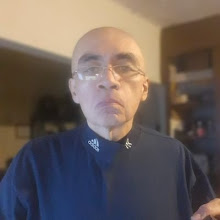After we finished our class, Rosemary came to my office to talk about her paper and she raised a very important question regarding the classifications of regimes that we considered during our class this Monday.
She asked me if these regime classifications are, for the most part, an example of Orientalism. I told her yes.
This is important and for those of you who are not familiar with the concept of Orientalism I will suggest some very basic readings. One, from the books I use for my Introduction to Sociology course. British sociologist Karim Murji tells us in page 237-8 of Uses of Sociology that Orientalism is:
A systematic form of cultural discourse that creates and reproduces various interlinked oriental stereotypes--ideas of 'the East' characterized by sexual exoticism, religious mysticism and corrupt despotism, for instance. These distinctive ways of conceptualizing the Orient as 'different' set up a 'we-them' opposition or distinction to the 'West' through which exoticism of the former is contrasted with the morality of the latter.
It is important to underline that in Said's argument ideas about 'us' and 'them' are mutually constituted: they depend upon one another. They also establish the link between knowledge, power and government (...)
Said maintained that Orientalist discourse is to be found in the writings of academics as well as government officials. The academic category included historians, geographers, anthropologists and sociologists. Their writings dichotomize the East and the West and produced seemingly authoritative ways for Westerners to 'see' the Orient, its places and people. Orientalist discourse therefore shapes notions about civility, purity, cleanliness, and so on, which places--or rather centres--the 'West' on one side and 'the rest' on the other, on the periphery. Again the imagined location of the 'West' depends upon, indeed it is constituted by, the notion of 'the other' as being on the margin. As Chandra Mohanty says: 'it is only insofar as ... the East [is] defined as Other, or as peripheral that (Western) man/humanism can represent him/itself as the centre. It is not the centre that determines the periphery, but the periphery that in its boundedness determines the periphery. For Said, the 'gaze' of sociological--as well as other disciplines--knowledge and expertise was instrumental in making and legitimating such distinctions.
I think it is quite easy to see how frequently political regimes and entire societies in Latin America and other regions are labeled as democratic or non-democratic with paradoxical consequences. On the one hand, the pressure put on those societies to adopt democratic rule as a standard to be measured against, has prevented many Human Rights abuses; on the other hand, that pressure has been frequently an excuse to debunk legitimate regimes.
Moreover, in the case of the US foreign policy, a key variable when dealing with Latin American topics, it is possible to observe overtime how the democratic criteria changes and does not fit a clear standard. The best possible examples of this double standard are Cuba and China. While in the case of Cuba there is tremendous pressure to deny any merit to its government with China there is plenty of room to accommodation.
However, the question of who is democratic and who is not is still relevant. I already spelled out some of the reasons why I think it is important to raise those kinds of questions. One additional reason that we will consider later in the course connects with the quest to expand citizenship rights in the region. For this kind of questions substantive analysis of the conditions to classify a regime as democratic not democratic are relevant.
Of course, here we come to clash with the old question about the universality of a concept as Human Rights. Can we really believe that there is such thing as a universal concept of Human Rights? Foucault and many other post-moderns and post-structuralists will say no, no way. I, a habermasian, reconstructed Catholic believe that it is possible to find elements of Human Rights beliefs and practices in almost all known societies, and that even if there are some that lack such tradition in specific aspects of it (lets say as in the case of female "circumcision"), it is necessary to push for changes in that direction. Of course, I do not believe in military interventions, not even in the kind of regime-harassment so common nowadays in the US foreign policy parlance.
So even if the classifications that we consider today at class follow, up to a certain extent, the pattern of Said's 'sociological gaze', I also believe that the debate about the requisites to consider a country a democracy is relevant and necessary because such debate happens, as I mentioned during class, not only outside of the country, but also within the countries themselves.
If you want more information about the connection between Orientalism, democracy, Latin America and the United States click here. A very brief summary and review of Said's Orientalism can be found here.
If you want a brief article by Said himself celebrating 25 years of the publication of Orientalism, click here. Finally, a brief review of Orientalism from 1980 can be found here. A good, more contemporary book by Said is Power, Politics and Culture: Interviews with Edward Said and is available at Rose Hill with the call number CB18.S25 A3 2001B .
